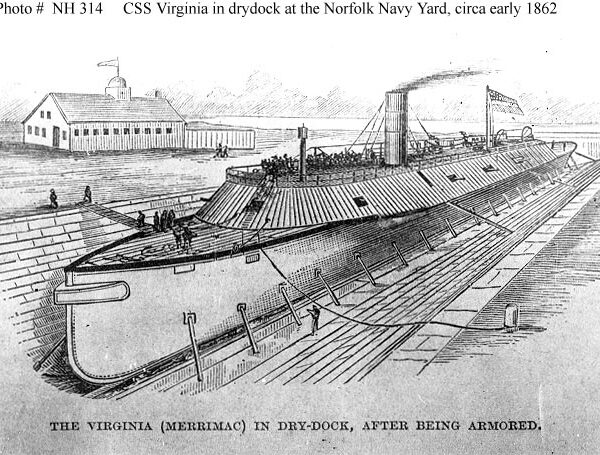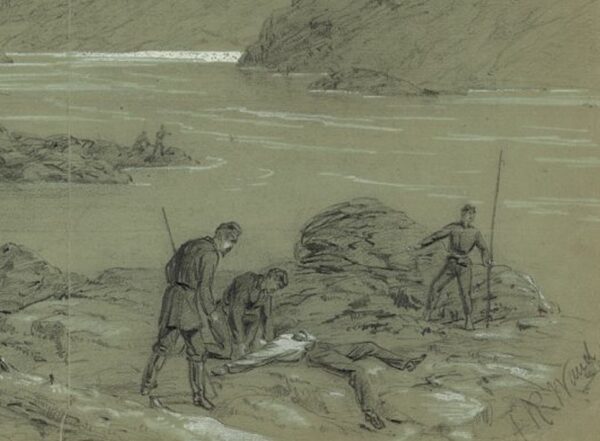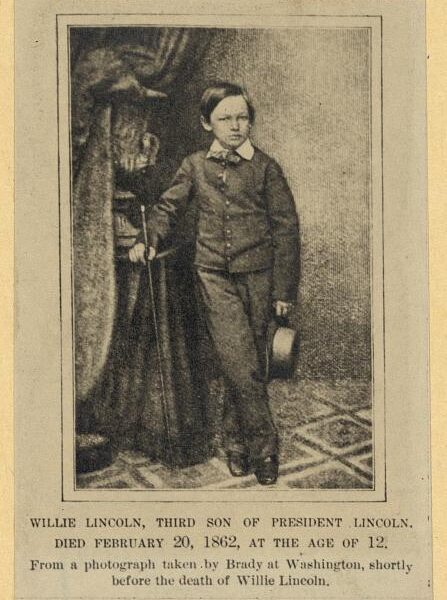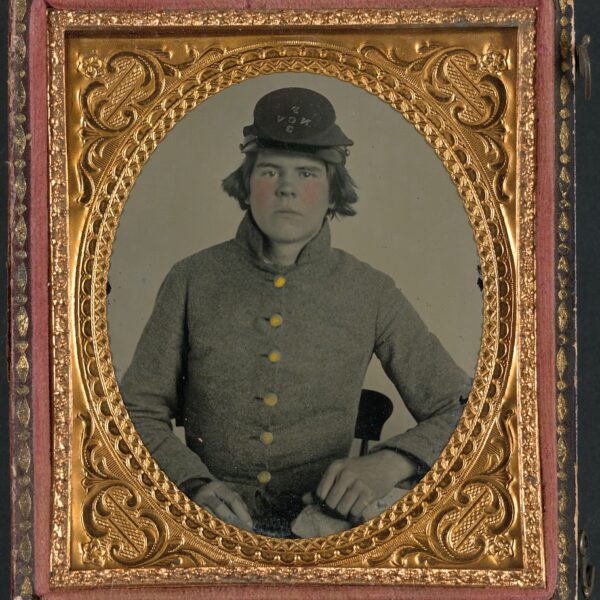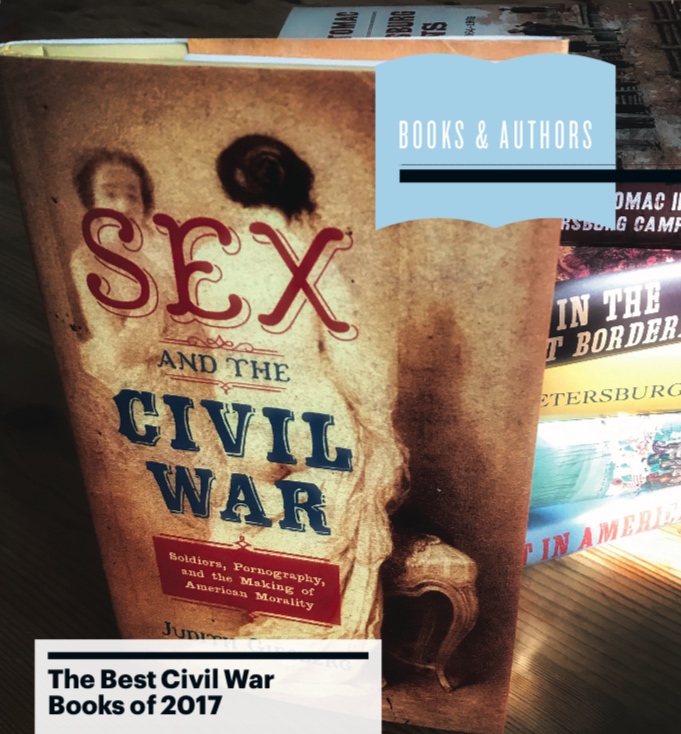
The Books & Authors section of our Winter 2017 issue contained our annual roundup of the year’s best Civil War titles. As usual, we enlisted the help of a handful of Civil War historians and enthusiasts, avid readers all, and asked them to pick their two favorite books published in 2017. Below are their picks.
We also gave them a chance to name an additional title or two that they’re looking forward to, books that either were released this year or are coming out in print soon. Check those out in the issue.
A. Wilson Greene
Top Pick: I suppose that every contributor to this enjoyable exercise brings a healthy dose of personal bias to identifying 2017’s best books of Civil War history. I freely admit such prejudice in selecting the fifth and final volume of Gordon Rhea’s masterful chronicle of the Overland Campaign as the year’s premier literary contribution to our field. On to Petersburg: Grant and Lee, June 4–15, 1864 (Louisiana State University Press) carries the story of the Ulysses S. Grant–Robert E. Lee confrontation in May and June 1864 to its conclusion on the eastern outskirts of Petersburg. Rhea brings to this effort all of the attributes that have distinguished his previous studies of military operations from the Wilderness to Cold Harbor: extensive and original research in untapped sources; clear and compelling prose; and thoughtful analysis to complement a narrative history of the actions taken by all the armies in blue and gray during the fortnight that marked Grant’s movement to and across the James River. Rhea is the first historian to unravel the complex maneuvers that brought the Union army to the gates of Petersburg in early June. His insightful description of these logistics will stand for generations as the last word on this aspect of the war. As with his earlier studies, Rhea’s On to Petersburg strikes just the right balance to appeal to both specialists deeply interested in the subject and those educated readers merely seeking well-crafted non-fiction writing.
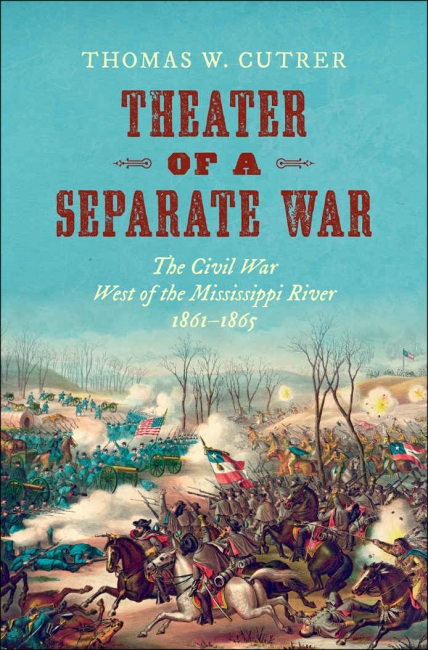
Honorable Mention: Historians have badly neglected the Trans-Mississippi theater of the Civil War. To be sure, excellent monographs exist on aspects of that far-flung region—such as the major battles in Missouri and Arkansas during the war’s first year. But until Thomas Cutrer’s outstanding Theater of a Separate War: The Civil War West of the Mississippi River, 1861–1865 (University of North Carolina Press), no scholar has attempted to consider the Trans-Mississippi comprehensively. Readers will not only learn about the many underappreciated campaigns that marked the war in the West, but they will benefit from Cutrer’s masterful analysis of the role played by these military actions in the greater context of the war. Everyone interested in tackling a study of any portion of the Civil War west of the Mississippi must start with a careful reading of Cutrer’s brilliant new book.
A. WILSON GREENE RECENTLY RETIRED FROM A 43-YEAR CAREER IN PUBLIC HISTORY. THE FIRST OF HIS THREE VOLUMES ON THE PETERSBURG CAMPAIGN WILL BE PUBLISHED BY THE UNIVERSITY OF NORTH CAROLINA PRESS IN JUNE 2018.
Lorien Foote
Top Pick: I love Jonathan W. White’s Midnight in America: Darkness, Sleep, and Dreams During the Civil War (University of North Carolina Press) because it is about a daily human experience, dreaming. It takes readers into the very personal experiences of Civil War-era Americans while also showing what dreams can tell us about some important scholarly questions regarding the Civil War. We learn what soldiers and their wives dreamed about and how they shared those dreams with each other. We learn about marriage and about how soldiers coped with the stresses of battle. And we learn about the prophetic dreams that Americans of all races believed in. White likes to debunk historical myths that scholars have perpetrated, and the final chapter sets us all straight about Abraham Lincoln’s dreams.
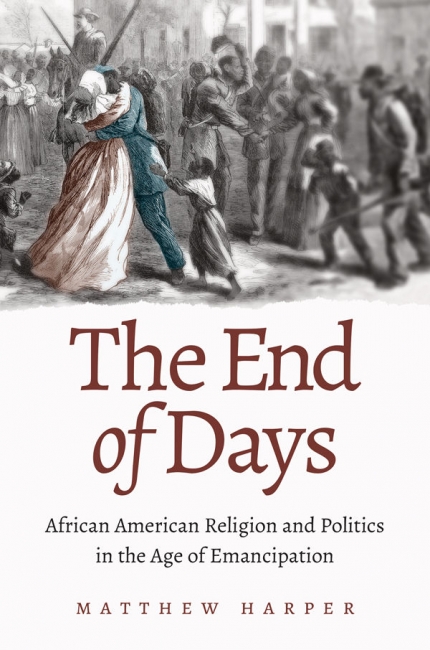
Honorable Mention: Though it was released at the end of 2016, Matthew Harper’s The End of Days: African American Religion and Politics in the Age of Emancipation (University of North Carolina Press) deserves mention. In a list of all the scholarly literature on African-American history and culture, there is no book quite like this. Harper explores how African Americans conceived of their place in God’s plan for history and how their eschatology shaped their political writings and actions in the age of emancipation. It’s a fascinating book that altered how I think about emancipation and black political activity in the second half of the 19th century.
LORIEN FOOTE IS PROFESSOR OF HISTORY AND DIRECTOR OF GRADUATE STUDIES AT TEXAS A&M UNIVERSITY. SHE IS THE AUTHOR OF THREE BOOKS ABOUT THE CIVIL WAR, INCLUDING THE YANKEE PLAGUE: ESCAPED UNION PRISONERS AND THE COLLAPSE OF THE CONFEDERACY (UNIVERSITY OF NORTH CAROLINA PRESS, 2016).
Gerald J. Prokopowicz
Top Pick: Steven E. Sodergren’s The Army of the Potomac in the Overland & Petersburg Campaigns: Union Soldiers and Trench Warfare, 1864–1865 (Louisiana State University Press) accomplishes the rare feat of uncovering something substantially new about a major Civil War military campaign. As the centennial of World War I stirs up images of the horrors of trench warfare, Sodergren’s research leads him to the remarkable conclusion that for Union soldiers, life in the trenches of Petersburg actually came as a welcome improvement over their even more brutal experiences during the Overland Campaign. Other historians including Gordon Rhea, Richard Sommers, and Hampton Newsome have written brilliantly about individual battles during this period, but Sodergren is the first to focus on the ebb and flow of the Army of the Potomac’s morale over the entire 11 months from the Wilderness to Appomattox. Looking at court-martial records, letters, and diaries, he finds that the army came closer to collapse in the summer of 1864 than commonly recognized. Even more surprising, he argues that it was the onset of trench warfare that provided sufficient structure and safety for men to recover their discipline and demonstrate their resilience, even while living in constant discomfort and frequent danger. It’s a book that invites rethinking about the relative horrors of mobile and positional warfare, with applications to other conflicts from World War I to the 21st century.
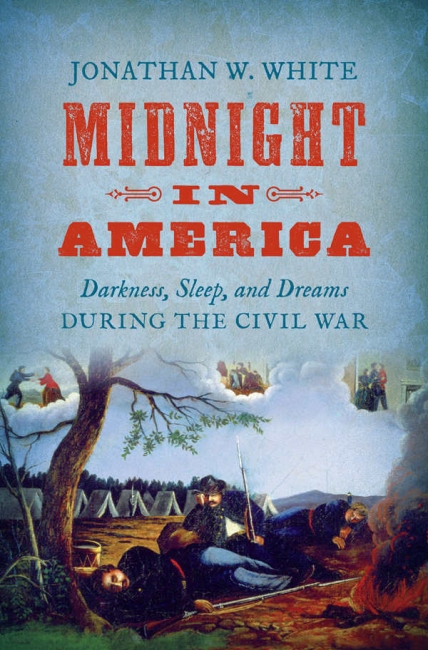
Honorable Mention: Two books that pushed the boundaries of Civil War scholarship deserve equal mention here. The first is Judith Giesberg’s Sex and the Civil War: Soldiers, Pornography, and the Making of American Morality. Editor Bennett Cerf supposedly once said the ideal topic for a sure-fire bestseller would be “Lincoln’s doctor’s dog”; Giesberg has updated that by combining the Civil War, soldiers, and sex. More important, her approach is much more sophisticated and nuanced than that of Thomas P. Lowry, author of the only previous book on the topic. The second book is Jonathan W. White’s Midnight in America: Darkness, Sleep, and Dreams During the Civil War. With tens (maybe hundreds) of thousands of books written about the Civil War, none until now has focused on the eight (or often fewer) hours when soldiers and civilians slept. White’s examination of their accounts of dreams reminds us both of cultural differences and human similarities between their lives and ours.
GERALD J. PROKOPOWICZ IS PROFESSOR OF HISTORY AT EAST CAROLINA UNIVERSITY. HE IS CURRENTLY WORKING ON A BOOK ABOUT ABRAHAM LINCOLN IN PUBLIC MEMORY.
Andrew Wagenhoffer
Top Pick: In the Civil War historiography, the Desert Southwest regional literature is fairly well developed, although still heavily weighted toward the 1861–1862 New Mexico Campaign. With its unique expansion of the physical and ethnic geography of the region, Andrew Masich’s Civil War in the Southwest Borderlands, 1861–1867 is the first truly all-inclusive treatment of the Civil War years in the Southwest. Seeing the war there as distinctly different from the North vs. South Civil War that existed elsewhere on the continent, Masich successfully argues that the conflict in the Southwest is better understood as a series of interrelated “civil wars” fought among and between numerous indigenous groups, U.S. Hispanos, Mexicans, and Anglo-Americans. Historical borderlands, with their physical and figurative barriers as well as their domestic and transnational lines of demarcation, are popular topics among today’s scholars, and Masich’s book is an original contribution to that growing field. Masich’s deep research into international archival resources enriches his work considerably. He succeeds magnificently in establishing the American Civil War period as a critical moment of social, political, and economic transformation in the Southwest. As Masich demonstrates, while pockets of resistance would continue to exist for years to come, U.S. hegemony over the inhabitants of Arizona, New Mexico, and West Texas was firmly rooted by 1867.
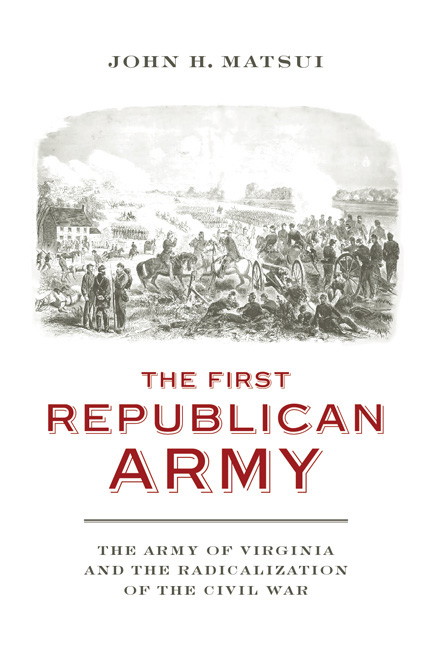
Honorable Mention: John H. Matsui’s The First Republican Army: The Army of Virginia and the Radicalization of the Civil War (University of Virginia Press) is the first scholarly study of the short-lived and hard-luck Union Army of Virginia. It would have proved useful even if it had ended there, but the study blossoms into grander significance with its deft analysis of that army’s high command and its bold claims about the political activism of the men in its ranks. While he may have overreached in his general conclusions, Matsui’s characterization of the Army of Virginia as a uniquely Republican instrument that profoundly reshaped the conduct of the war in the East from limited conflict and conservative war aims toward hard war and emancipation nevertheless exhibits considerable resonance with the reader. Matsui is a scholar on the rise.
ANDREW WAGENHOFFER IS THE CREATOR AND EDITOR OF THE NONFICTION BOOK REVIEW JOURNAL CIVIL WAR BOOKS AND AUTHORS (CWBA.BLOGSPOT.COM).
Kevin M. Levin
Top Pick: This year I have to give the top prize to Steven E. Sodergren’s The Army of the Potomac in the Overland & Petersburg Campaigns. The book, which functions very much like a companion volume to J. Tracy Powers’ 1998 Lee’s Miserables: Life in the Army of Northern Virginia from the Wilderness to Appomattox (University of North Carolina Press), explores the Army of the Potomac during the war’s final year. Sodergren looks at how Union soldiers dealt with the obvious challenges related to the changing nature of the war, including adapting to life in earthworks, but he also considers largely unexplored topics such as soldier responses to the work of northern charitable organizations. Chapters focused on how soldiers transitioned from the continuous fighting during the Overland Campaign to periods of inactivity during the Petersburg Campaign are particularly interesting. The research behind this book is extensive, and it is beautifully written.
Honorable Mention: Jonathan W. White’s Midnight in America: Darkness, Sleep, and Dreams During the Civil War is a reminder that there remain plenty of topics in the field of Civil War history to research and write about. White examines the meaning that Union and Confederate soldiers, slaves, and even such notable figures as Jefferson Davis and Abraham Lincoln attached to their dreams and how these meanings evolved over the course of the war. For some, sleep was a welcome refuge from the struggles of war; for others, the Civil War years, as the author notes, “might reasonably be considered the most sleepless period in American history.”
KEVIN M. LEVIN IS A WRITER AND HISTORIAN BASED IN BOSTON. HE IS THE AUTHOR OF REMEMBERING THE BATTLE OF THE CRATER: WAR AS MURDER (UNIVERSITY PRESS OF KENTUCKY, 2012) AND EDITOR OF INTERPRETING THE CIVIL WAR AT MUSEUMS AND HISTORIC SITES (ROWMAN & LITTLEFIELD, 2017). HIS LATEST WORK, SEARCHING FOR BLACK CONFEDERATES: THE CIVIL WAR’S MOST PERSISTENT MYTH, WILL BE PUBLISHED BY THE UNIVERSITY OF NORTH CAROLINA PRESS. YOU CAN FIND HIM ONLINE AT CIVIL WAR MEMORY (CWMEMORY.COM).

